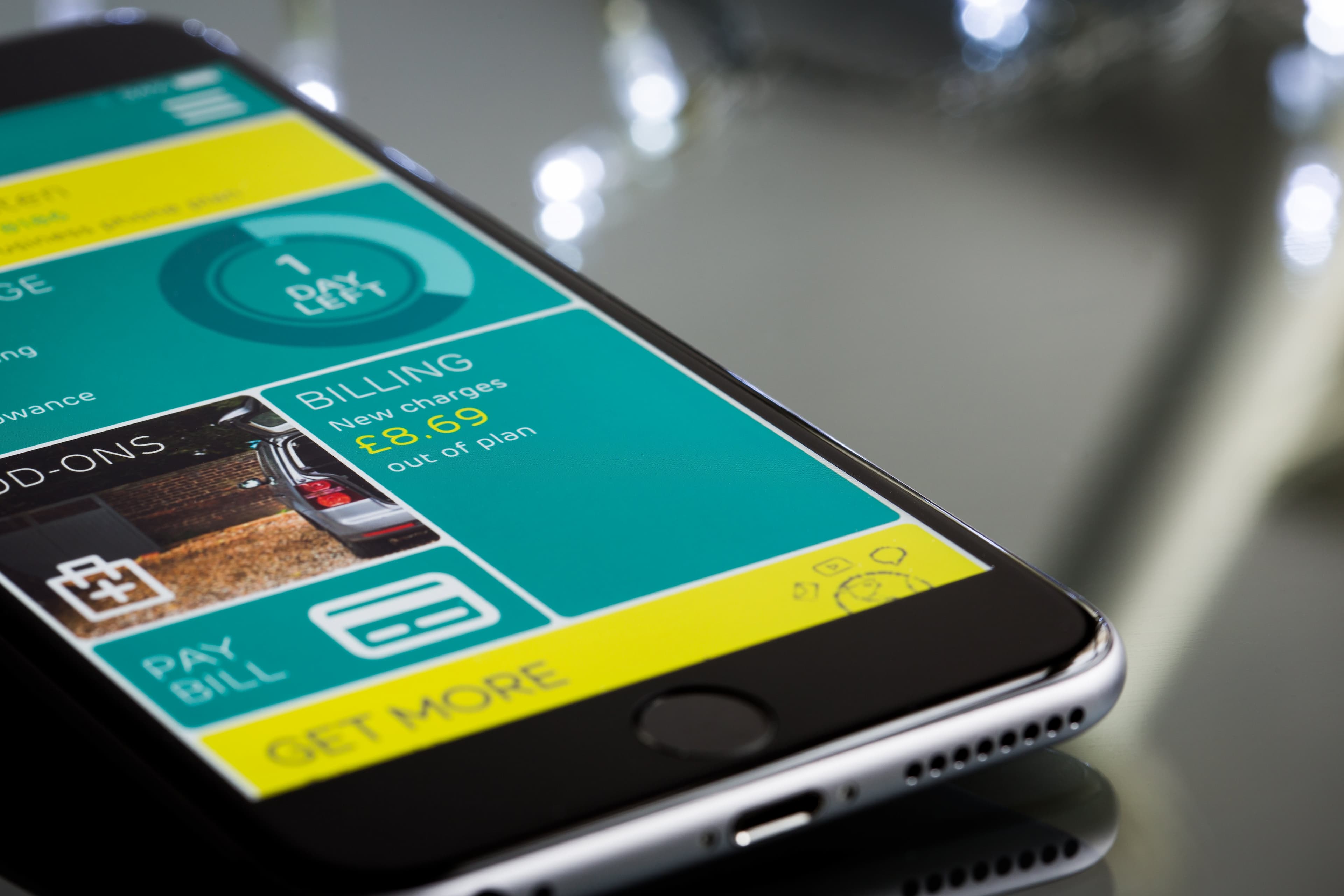Mobile
Idea to Launch in 5 Steps: Mastering Mobile App Development

Nov 10, 2023
The world of mobile applications is in constant expansion, making mobile app development a crucial part of modern business success to stand out in an increasingly competitive market.
Let's together explore the importance of a robust mobile development strategy, focusing on iPhones and Android smartphones, highlighting the essential steps of the process, and understanding the vital role of continuous maintenance to keep up with the constant changes and updates from app stores.
The importance of Mobile App Development Strategy for Businesses
In today's world, mobile applications have become an essential tool across various industries. Companies of all sizes are leveraging apps to enhance the customer experience, increase operational efficiency, boost user engagement and provide more services close to the customer.
The growing demand for mobile apps across different business sectors underscores the need for a solid app development strategy.
Real-World Examples of Companies That Evolved with Mobile Apps
Leading companies in their respective industries, such as Amazon, Uber, and Netflix, already had an online presence but made significant strides by launching mobile apps. This allowed for more convenient access for their customers and a noticeable increase in user use and satisfaction.
These examples demonstrate the transformative potential of adapting to mobile devices, which can significantly enhance market participation.
The Step-by-Step Process of Mobile App Development
1. Discovery:
Concept Analysis: Before embarking on app development, it's essential to analyze the idea and align it with business objectives.
- Research and Analysis: conduct market research and competitive analysis to help you identify market gaps and opportunities, forming a strong foundation for development.
- Design and Wireframing: creating wireframes and prototypes allows the visualization of the app's functionality before development begins, ensuring an enhanced user experience.
- MVP Development: developing a Minimum Viable Product accelerates the app's launch, enabling initial feedback collection and speeding up the improvement process.
2. Development
Selecting the right technologies for the mobile and back-end are crucial for ensuring app scalability and performance, providing a robust foundation for continuous operation.
- Mobile Technology: The user interface is what users first encounter, the actual app that the user clicks. Making this choice is also important for a visually appealing experience.
- Backend: Developing efficient APIs for data interactions is fundamental for seamless communication between the app, servers, and other data sources, ensuring smooth integration.
After selecting the technology we have to start developing the actual application. The first step was crucial to understand the scope and this is very helpful for the team to create the tasks and start the development process.
Most high performance teams uses Agile Methodologies to their development processes.
3. Testing
After building the MVP and before an app can go live and reach its audience, it undergoes a rigorous testing phase.
This phase is crucial to ensure that the app operates seamlessly across various platforms and devices, providing users with a flawless experience. A combination of manual and automated testing approaches is employed to identify and address usability issues and technical flaws, thereby guaranteeing the overall quality of the app.
Testing serves as a critical checkpoint in the app development process, ensuring that it is ready for deployment and launch.
- Mobile App Testing: Thorough testing is necessary to ensure the app functions smoothly on various platforms and devices, providing an error-free user experience.
- Manual Testing and Automated Testing: Combining manual and automated testing helps identify usability issues and technical flaws, guaranteeing app quality.
4. Deployment and Launch
The deployment and launch phase is a pivotal step in making your app available to the world. It's where your app comes to life and becomes accessible to your target audience. This phase involves specific processes for different app stores.
For Apple's iOS devices, it requires registration in the Apple Developer Program, meticulous app preparation, and the creation of an appealing App Store listing. Subsequently, the app undergoes review to ensure it meets Apple's quality standards.
On the other hand, for Android users, the journey begins by creating a developer account and designing a listing on the Google Play Store. Adjusting pricing and distribution settings comes next, all in preparation for publishing the app for Android users to download and enjoy. The deployment and launch phase is the culmination of your hard work in app development, marking the moment when your app takes its place in the digital landscape.
- App Store (iOS): To launch on the Apple App Store, registration in the Apple Developer Program is necessary. App preparation, App Store listing creation, and app submission for review are essential steps to establish a presence on iOS devices.
- Google Play Store (Android): The process for the Google Play Store involves creating a developer account, designing a listing, adjusting pricing and distribution, all before publishing the app for Android users.
5. Post-Delivery with Maintenance, Support, and Evolution
App launch marks just the beginning. App stores, such as the App Store and Google Play, regularly release updates, and mobile devices are in constant evolution. It's crucial to have a reliable partner for continuous support to ensure that your app remains up to date and functions smoothly, keeping up with market trends and requirements.
Real-world examples of updates impacting apps can include optimization for performance, ensuring that the app remains agile and responsive. Security fixes play a crucial role in protecting user data, while adaptation to new operating system versions is vital to ensure the app continues to function seamlessly.
Furthermore, it's essential to consider the implementation of new features that align with the planned app evolution, business objectives, and the expansion of the owning company.
The timing of these updates depends on the company's stage, specific goals, and the initial mobile app plan. For instance, if the app was initially launched as a Minimum Viable Product (MVP), a roadmap for introducing new features and enhancements over time is a common practice.
Success Mobile Apps: Stories of Triumph in the World of Mobile Applications
The mobile app landscape is rich with success stories from various segments, each serving a unique purpose. Here are six examples of mobile apps that have achieved remarkable success:
- Airbnb (Hospitality): Airbnb transformed the travel and hospitality industry by connecting travelers with unique accommodations and experiences, offering an alternative to traditional hotels.
- Seedrs (Investment): Seedrs helped many entrepreneurs raise money and small investors to invest in companies that are not publicly accessible. Offering a mobile application helped their growth.
- Uber (Ride-Sharing): Uber disrupted the traditional taxi industry by providing a convenient and reliable ride-sharing platform that connects passengers with drivers, transforming the way people commute.
- Spotify (Music Streaming): Spotify has redefined the music industry by offering a vast library of songs and personalized playlists that users can access from anywhere, providing an unmatched listening experience.
- Duolingo (Education): Duolingo offers a gamified approach to language learning, making it fun and engaging to acquire new language skills, appealing to a wide range of users.
- Robinhood (Finance): Robinhood introduced commission-free trading, democratizing access to financial markets, and empowering individuals to invest in stocks and cryptocurrencies with ease.
- Netflix (Entertainment): Netflix has revolutionized the way people consume video content, offering a vast library of movies, TV shows, and original productions that can be enjoyed on various devices, redefining entertainment in the digital age.
These mobile apps span diverse sectors, proving that a well-crafted mobile app, combined with a strong development strategy, can lead to widespread success and innovation.
Mobile App Development: The Crucial Journey of Stages Leading to Success
The development of mobile applications is a multi-step journey, encompassing several significant stages, each with its distinct contribution to the ultimate success of the app. The importance of these phases cannot be overstated.
It starts with the formulation of a robust strategy, moves into meticulous development and rigorous testing, and continues well beyond the app's launch with ongoing post-launch attention.
Mobile apps have become an integral part of our daily lives, offering convenience, entertainment, and solutions for various needs. However, creating an app that truly stands out in a competitive market is a complex undertaking that requires expertise, dedication, and continuous effort.
Wiseverge - Global Software Development Agency
More articles from our blog
It seems you’re ready to take the next step
Talking with us it's free and we will probably give awesome tips.
About Us





